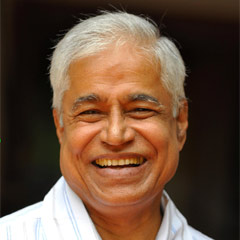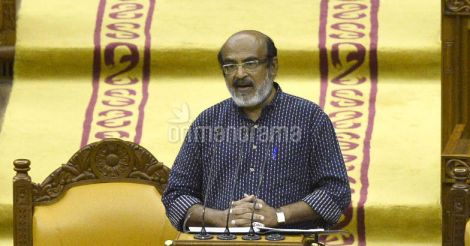Two projects in the Kerala Budget 2017-18 deserve special mention. The total allocation for the IT sector is Rs.549 crore and finance minister T.M. Thomas Isaac projects a lakh jobs in Infopark and 75,000 in Technopark. Technology innovation centers are proposed to come up at a cost of Rs.10 crore. The Budget has earmarked Rs.70 crore for the youth entrepreneurship development program, supposed to be a bouquet of several differently worded start-up schemes.
The Telangana state has been running T-Hub, a globally acclaimed and all-encompassing incubation program which provides a single window for all clearances.
The IT budget in Kerala does not have any such arrangement and given the bureaucratic lethargy and obscurantism, it is to be seen as to how the projects would be taken forward.
The projection of new jobs is also a matter of wishful thinking, going by the past figures.
K-FON (Kerala Fibre-Optic Network) is another ambitious project which intends to make Kerala ‘one of the rare places where internet facility will be the right of a citizen.' It is intended as a decisive step towards eliminating the digital divide. Kerala is among the top five Indian states in tele-literacy. There are 30 million mobile connections for a population of 33 million and 95.70 in every 100 citizens have a phone. There are 12.31 million internet connections and 31.12 wireless subscribers and for every 100 individuals there are 34.71 internet connections, among which 65% are in rural areas. This was achieved through the ‘Digital Kerala’ plan under ‘Vision 2020’ initiated in 2002.
Twenty lakh poor families are expected to get free K-FON internet connections. A new optic fibre pathway is to be created using the KSEB's existent network and this will provide last mile connectivity. The KSEB's infrastructure is already used of by cable TV networks.
Enquiries with the BSNL sources revealed that the public sector company is not associated with the K-FON project.
It is understood that two private agencies are going to take up the work. It is not known whether the Kerala government has secured the license to provide 20 lakh connections. Or, is there any deal for collaboration with a service provider who has already secured a licence? It is worth stating that because of the problems encountered with networking through overhead posts, BSNL is in the process of upgrading its infrastructure by laying underground optical fiber cables. It is strange that the Kerala government is not collaborating with BSNL for this ambitious project. Maybe, the finer details are yet to emerge and hope a transparent procedure will be followed.
The cost of the K-FON project is estimated to be Rs.1000 crore. The funding is to come from the Kerala Infrastructure Investment Fund Board (KIIFB). Look at any major investment-requirement or project in the Budget and the money is to come from KIIFB.
As per figures, the IT sector and connectivity part are faring well. But, the laudable project should wait for funds from an uncertain source. Another major component in the Green Kerala project is the proposed planting of three lakh saplings, to align with the monsoon. The Green Kerala Project, which started with great fanfare (an advertising blitzkrieg in media to keep them happy), has not made any progress whatsoever! Social forestry efforts in the past meant planting of water-intensive and exotic trees like acacia. This has affected bio-diversity and soil quality. There should be an evaluation and audit of the project first.
The budget lacks in laying out a specific plan to take the projects ahead. A case in point is the greening drive. No provision has been made to scientifically procure saplings/seeds and to sustain the planting program. What we can be sure of is that generic proposals with no focus on the core or the specifics can help little in sustaining growth. At best, budgets of this sort have remained an exercise in numbers.

























